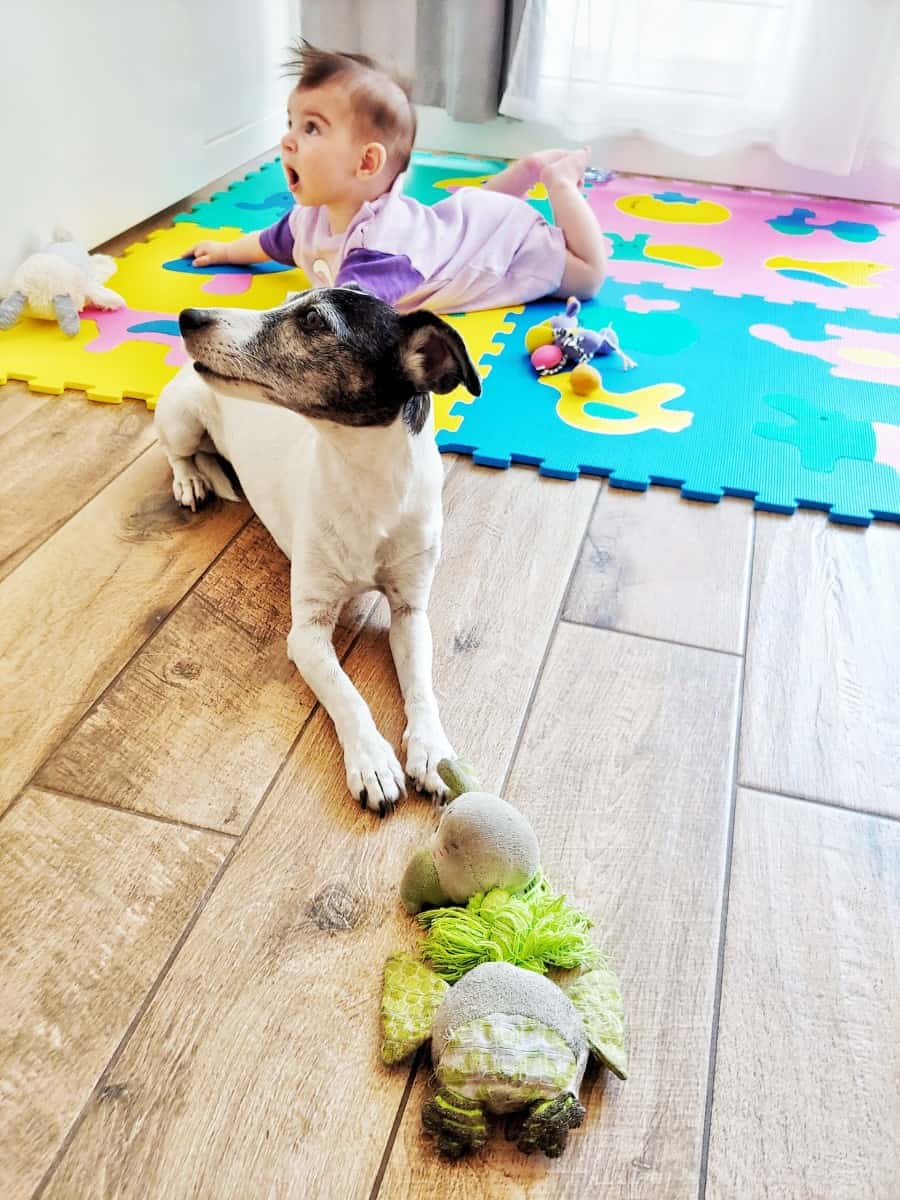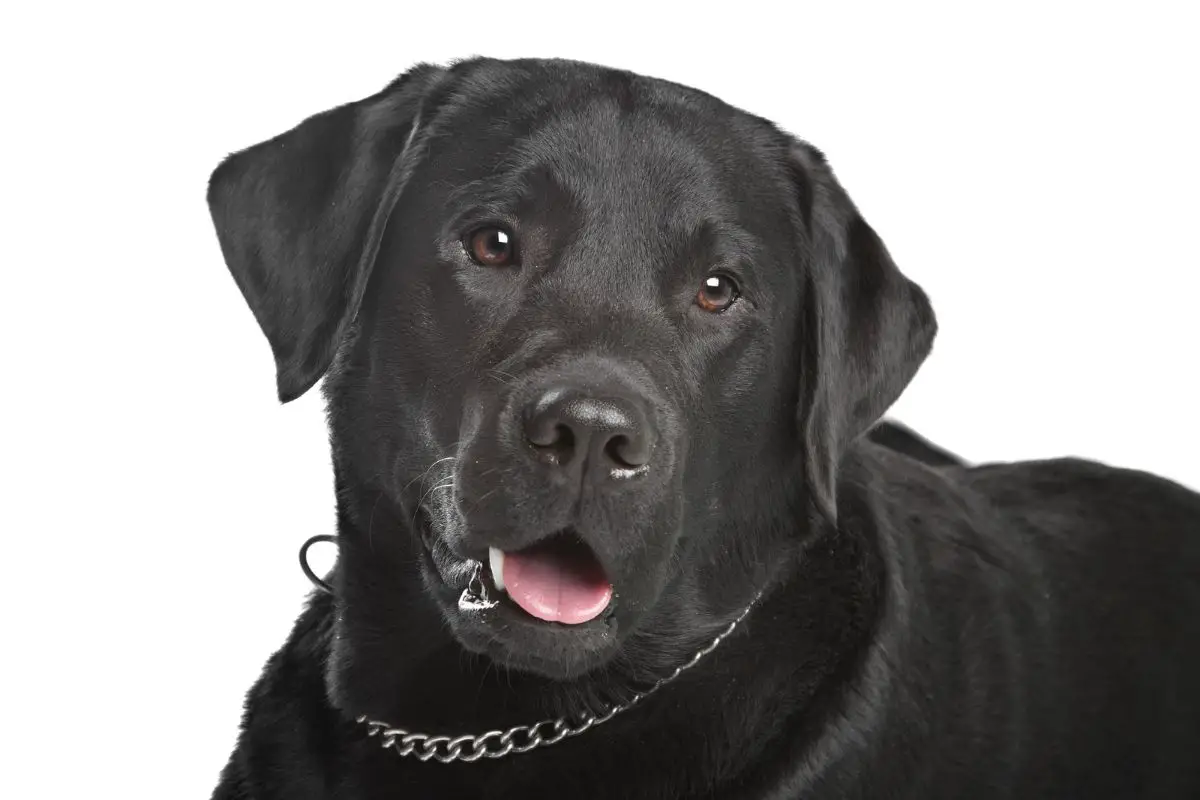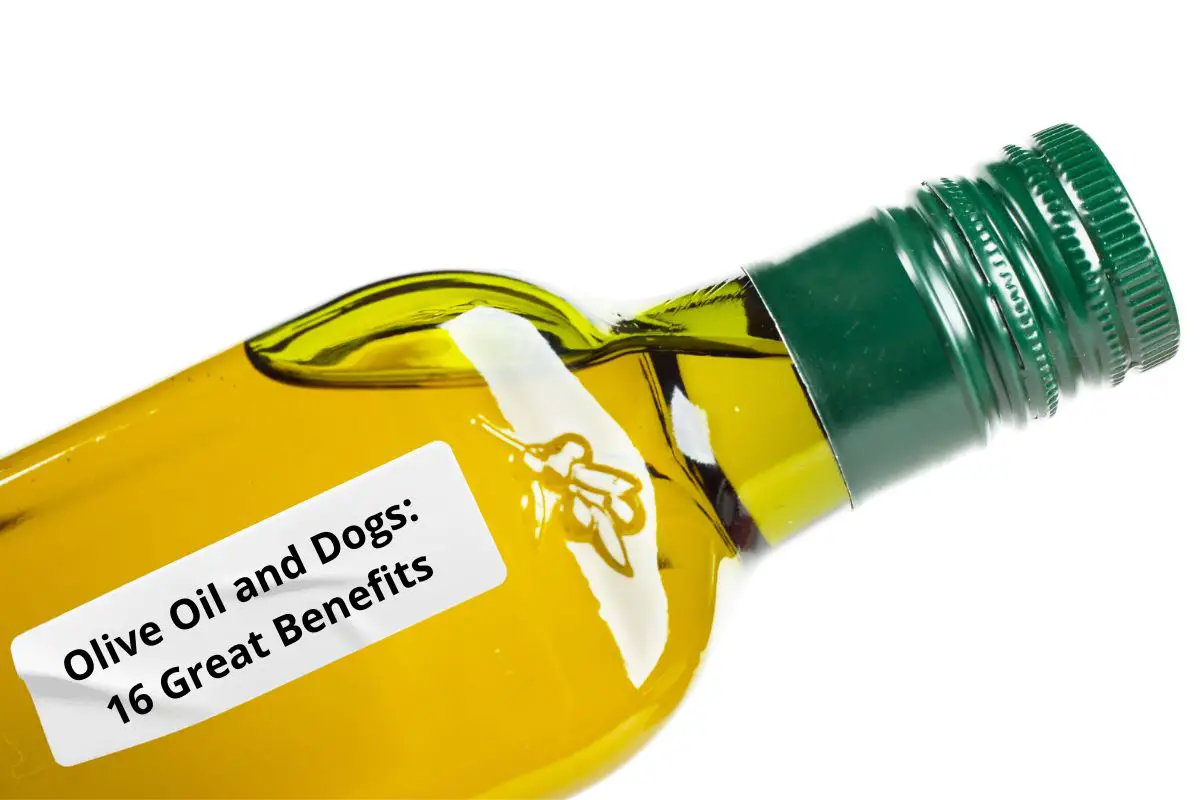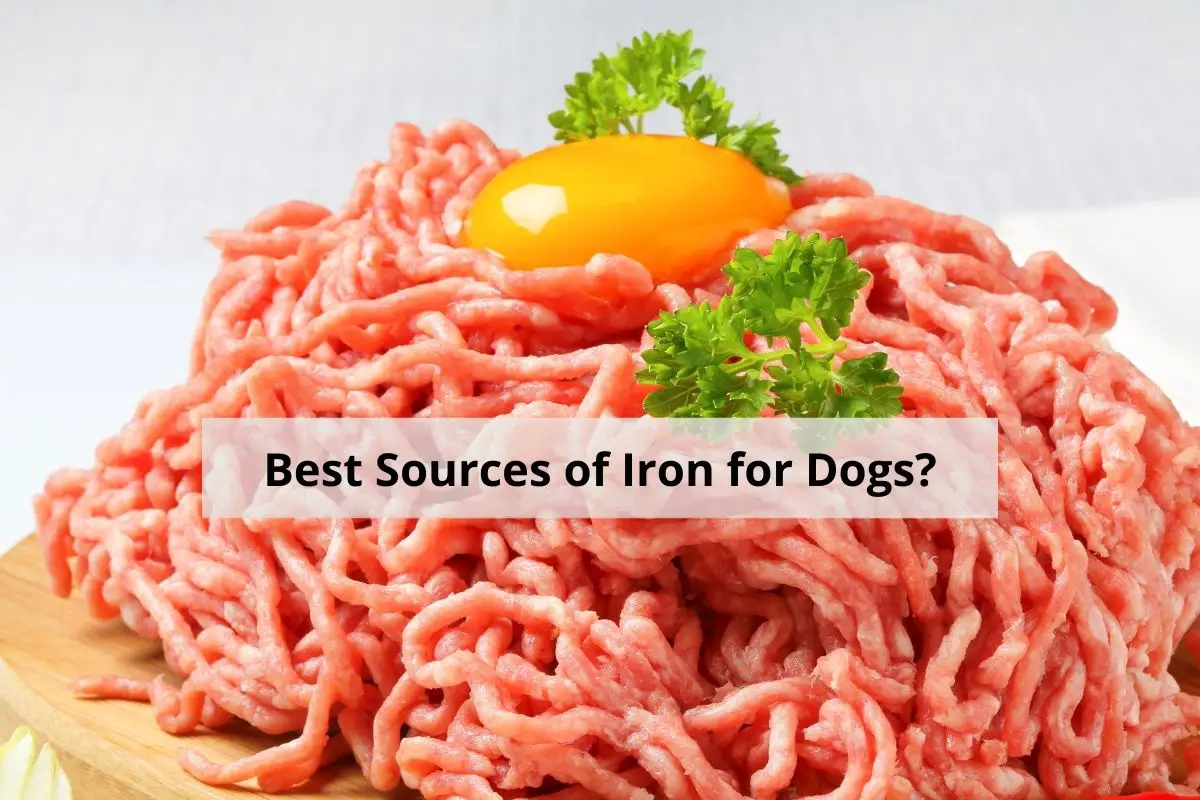This post contains affiliate links.
There are many common household foods that you should keep away from your dogs, like garlic and chocolate. However, baby food is not one of them. If you are cautious about the types of food that you feed them, there is no need to be concerned about baby food because it will not harm your dogs if they ingest it.
Feeding your dogs baby food is safe as long as it does not contain garlic or onion powder. It is a great alternative to give your dogs when they feel sick since baby food is easy to digest. However, making it part of their daily diet is not recommended.
If you are curious about why baby food is safe for your dogs, or why it is an excellent substitute for dogs with an upset stomach, you can learn about it in the succeeding sections. This article will also describe the types of food that you should not feed your dogs and other suitable options for when they feel sick.
Table of Contents
Should Dogs Eat Baby Food?
Currently, there is a debate between veterinarians over whether dogs are carnivores or omnivores. According to the Royal Society for the Prevention of Cruelty to Animals, dogs are primarily carnivores but can occasionally eat plant-based foods. Most commercial dog food contains a mixture of meat-based and plant-based food.
The most common dog diet today mainly consists of meat, with a variety of vegetables and other plant-based foods. For example, commercial dog food includes a lot of carbohydrates, such as rice or wheat, which is needed to hold the food together.
Although this is not what they have always eaten, modern household dogs descended from wolves. By examining the diet of a wolf and other wild dogs today, we know that canines mainly survive on raw meat. Dogs will eat raw meat, bones, organs, and the small amount of plant matter that remains in their prey’s stomach.
We further know that dogs prefer a meat-based diet by examining their jaws. Dogs have long, pointed teeth that tightly fit together, which allows dogs to tear the meat off bones. Herbivores, such as cattle or rabbits, have strong, flat molars instead, which allows their teeth to grind and break down vegetation.
Though dogs prefer a diet that is primarily meat, some researchers argue that it may also be possible for dogs to survive on a plant-based diet instead. However, studies have yet to be conducted on how a vegan diet might affect a dog’s health or life-span.
Because of the evidence that points to dogs as carnivores, meat-based baby foods are perfectly safe for your dogs. Though it has limited nutrients that your dog will need, baby food in moderation — and without any harmful additives — can easily be digested by a dog’s stomach.
However, baby food should not become a staple in your dog’s diet. The American Kennel Club only recommends Stage-II meat-based baby foods, such as turkey, chicken, or lamb, when your dog feels ill.
When to Feed Your Dog Baby Food?
You should only feed your dog baby food when they feel under the weather. Baby food is easier on your dog’s stomach and is more palatable than regular dog food, so your dog will probably eat a little bit of baby food before choosing their normal kibble. If your dog feels sick, baby food can help them get their feeding habits back on track.
Is Your Dog Feeling Ill?
Veterinarians recommend that you only feed your dog baby food if your dog is exhibiting an upset stomach. Before breaking out the baby food, think about how your dog has been acting recently.
As an owner, it’s your job to keep an eye on your pet if they feel unwell. You know your dog best, and dogs show several signs that indicate if they are feeling under the weather.
Abnormal behavior is a crucial change to look out for. If your dog is more tired than usual, not eating, displaying out-of-character whining, or showing signs of anxiety, these might be signs of illness. Excessive salivation and pale gums are also symptoms that you need to consider.
For a quick video on some common symptoms of illness in your dog, check out the video below:
However, not all signs of illness mean that you should give your dog baby food. Baby food is especially good for encouraging a sick dog to eat or settle an upset stomach, but not if your dog is having seizures. Because of this, baby food is a good option if:
Your dog is refusing to eat
Sometimes, a change in appetite can mean that your dog is sick. Baby food is a good way to coax a dog into eating. Nevertheless, make sure your dog is ill before trying this, rather than just being picky.
Your dog is throwing up his normal food.
Baby food is more digestible than commercial dog food and might stay down easier than dry kibble. However, this is not a solution in and of itself. So if your dog is throwing up, you should bring him to your veterinarian.
Other signs of illness, such as excessive salivation or pale gums, will not be aided by offering your dog baby food. These symptoms indicate a sickness that is unrelated to your dog’s stomach, and you should always call your veterinarian if you think that something is wrong.
When you find that your dog is having trouble eating, try warming up some baby food in the microwave. Dogs rely heavily on smell to judge whether food is edible or not, and heating the baby food will enhance its scent. You can try offering warmed baby food to your dog, to encourage them to eat.
If your dog responds positively to the baby food, you can mix it with your dog’s regular kibble. It will be more enticing for your dog and may encourage him to eat a full meal. Baby food on its own should not be considered enough food for a sick dog.
When to Stop Feeding Baby Food to Your Dog?
Once your dog goes back to eating his regular dog food, it is time to stop giving him baby food. You do not want your dog to expect baby food regularly.
Baby food is more expensive than regular dog food and can make your dog — especially your puppy — a finicky eater. Consistently giving your dog baby food might make them turn his nose up at commercial dog food the next time you try to serve it. Because of this, making baby food part of your dog’s everyday diet is not recommended.
Baby food does not have the same nutritional content as dog food. Commercial dog food is formulated for a dog’s diet, while baby food is not. However, it is a good idea to give your sick dog baby food to help them eat. While baby food is good as a treat or coaxes an ill dog into eating, it should not replace any food in your dog’s diet.
Treats to Feed Your Dog in Place of Baby Food
If you are looking for a treat for your dog, baby food is likely not the best option. There are various treats available, which are more nutritious and inexpensive than baby food.
Greenies Natural Dental Dog Treats
These treats are a great and healthy option for your dog, particularly if you have noticed that their breath smells unpleasant. Greenies come in different sizes and flavors, so you can be sure that your dog is getting what’s best for them.
Full Moon All Natural Dog Treats
If you’re looking for a way to spoil your dog, look no further. These treats are made with human-grade ingredients, meaning that you won’t find anything harmful in here for your dog. They’re also grain and glycerine-free.
Rocco & Roxie Gourmet Jerky Dog Treats
These jerky dog treats are another great option. These treats are as close to real jerky as you are going to get. Choose from beef, chicken, or turkey, and let your dog chow down on these all-natural, grain, and gluten-free snacks.
Milk-Bone Soft & Chewy Dog Treats
For anyone who wants a classic treat for their dog, Milk-Bone is here to help. These chewy, chicken-flavored dog bones are fortified with 12 vitamins and minerals to keep your dog happy, healthy, and satisfied.
There are many other dog treats available, each with their benefits. Try shopping around for one that suits your needs and one that your dog loves to eat. Some dogs are more food-motivated than others, so you might have to try a couple of brands before finding the right treats for your dog.
Other Foods to Feed Your Sick Dog
Of course, if your dog is sick, they might turn their nose up at even the best dog treats. Baby food is a great replacement if your dog is sick, or has not been eating recently. Yet not everyone keeps baby food stocked in their pantry. Here are a couple of other foods that you can try to entice your dog to eat:
Cooked Chicken and Rice
This is a bland meal that sits easily in a dog’s stomach. Chicken and rice are common ingredients in commercial dog food, but make sure to avoid adding oils or spices that might further upset your dog’s stomach.
Related article: How To Boil Chicken for Dogs? (The Perfect Recipe!)
Bone or Chicken Broth
Broth is another good option that is easy for dogs to digest. It contains plenty of nutrients, but your dog will find it more palatable than commercial dog food.
Pumpkin
Pumpkin is high in fiber and other vitamins, such as Vitamin A, Vitamin C, iron, and magnesium. Because of the high fiber content, pumpkin is great for your dog’s digestive system, and you can buy an unseasoned, canned pumpkin at the grocery store. Don’t buy pumpkin pie filling, because that has spices and sugars included.
Shredded Chicken
When your dog stops showing interest in their normal food, giving them shredded chicken is a great incentive for them to eat. It has the added bonus of sitting easily in your dog’s stomach and is full of vitamins and nutrients that will help your dog feel better.
When trying to get a sick dog to eat, the most important thing to remember is to keep the food bland. Bland food can be digested more easily than food with spices, salt, or sugar added in.
It is also important to make sure that your dog is not simply picky. If your dog shows signs of a lack of appetite or lethargy, they may not be sick. Sometimes, switching up their preferred dog food brand is all that you need to do. Dogs can get bored with their food too!
Yet, if you are sure that your dog is sick, and if your dog does not respond to these foods, always bring him to be checked out by a veterinarian.
Foods to Avoid
Though most baby foods are safe for your dog to eat, there are a couple of ingredients that you will need to watch out for before offering baby food to your pet.
Under no circumstances should your dog be eating foods that contain any garlic powder or onion powder. Onions contain a toxin known as allyl propyl disulfide, which is extremely dangerous for your dog. Allyl propyl disulfide can cause your dog’s red blood cells to break down, leading to anemia.
Garlic is part of the same vegetable family as onions, the genus is known as Allium, and is equally dangerous to your dog. Feeding your dog garlic will cause your dog’s red blood cells to die, leading to anemia. It is generally better to avoid feeding your dog any plants from the Allium genus, as most of these plants (including chives, leeks, and shallots) are toxic to dogs.
Other foods are considered toxic to dogs, not only garlic, onions, and other Allium plants. Under no circumstances should you feed your dog any foods from the following list:
Chocolate and coffee
What do these foods have in common? They both contain methylxanthines, which are highly toxic to dogs. Any food that contains caffeine will contain methylxanthines. If your dog ingests methylxanthines, this can cause vomiting, diarrhea, seizures, or death.
Alcohol
Much like humans, dogs can get alcohol poisoning. However, because dogs are so much smaller than humans, dogs can quickly reach a dangerous level of alcohol toxicity.
Xylitol
Xylitol is a type of artificial sweetener, known as sugar alcohol. It is in candy, toothpaste and mouthwash, baked goods, and gum, among other products. Xylitol can cause your dog’s system to release increased insulin levels, leading to liver failure if untreated.
Milk and dairy
Like some humans, dogs do not produce large amounts of lactase. Without lactase, a dog’s stomach cannot break down dairy products, leading to an upset stomach, diarrhea, or vomiting if your dog overeats.
While some dog owners might feed their dogs a bit of cheese off of their pizza, this should be done extremely rarely. Any amount of dairy can upset a dog’s stomach, and you don’t want to have to deal with that.
Macadamia Nuts
Though it has yet to be discovered why macadamia nuts are so toxic for dogs. Even a small amount of macadamia nuts can make your dog very sick. Ingestion of macadamia nuts can lead to weakness, lethargy, vomiting, or tremors, so it is best to keep macadamia nuts far out of reach from your pet.
When reading this list, remember that dogs and humans are different sizes; what we consider as a tiny nibble might be a significant bite for a dog, particularly to small dogs. If your dog has ingested any food that might be poisonous, keep a close eye on their behavior over the next day or so.
Please note that this is not a complete list of foods that can be toxic for dogs. To see the full list, please visit the ASPA page. As always, if your dog eats any of these foods, please bring them to the veterinarian.
Summary
Baby food is indeed safe to feed to your dog. However, be sure to check the ingredients before giving it to them. Dogs should not ingest baby food containing garlic or onion powder.
Additionally, it is best to store baby food for when your dog gets sick. It is not as nutritional as other types of dog food, and you don’t want your dog to expect baby food regularly because it can turn your dog into a picky eater.
If your dog is sick, baby food is a good option for coaxing your dog into eating. If your dog has an upset stomach, breaking out a small amount of baby food may entice your dog into eating some nutrients.
If baby food or any of the alternatives listed in this article does not work, please bring your dog to a veterinarian.
Sources
- American Kennel Club: Five Foods to Feed Your Dog When He’s Sick
- Wiley Online Library: Results of a Hypoallergenic Diet Survey of Veterinarians
- Wiley Online Library: Gastrointestinal Effects Following Acupuncture at Pericardium-6 and Stomach-36 in Healthy Dogs
- Lake Mills Veterinary Clinic: Encouraging a Sick Pet to Eat
- American Journal of Veterinary Research: Hematologic Changes Associated with the Appearance of Eccentrocytes After Intragastric Administration of Garlic Extract to Dogs
- RSPCA: What Should I Feed My Dog?
- Dogs Naturally: Feed Your Dog Like A Wolf
- Wolf Tucker: Raw Feeding Guide
- National Geographic: Can Cats and Dogs Be Vegan?
- Dogs Naturally: Is Your Dog Friend an Omnivore or a Carnivore?
- American Kennel Club: Can Dogs Eat Onions?
- Wikipedia: Allyl propyl disulfide
- Wikipedia: Allium
- American Kennel Club: Can Dogs Eat Macadamia Nuts?
- Can I Give My Dog: Read This Before Giving Your Dog Baby Food
- The Spruce: Signs of Illness in Dogs
- American Kennel Club: What To Do if Your Dog Drinks Alcohol
- Drugs: Methylxanthines
- Wikipedia: Lactase
- Food and Drug Administration: Paws Off Xylitol; It’s Dangerous for Dogs
- American Kennel Club: Best Dog Treats
Mrdogfood.com is a participant in the Amazon Services LLC Associates Program, an affiliate advertising program designed to provide a means for sites to earn advertising fees by advertising and linking to Amazon.com. We also participate in other affiliate programs which compensate us for referring traffic.





